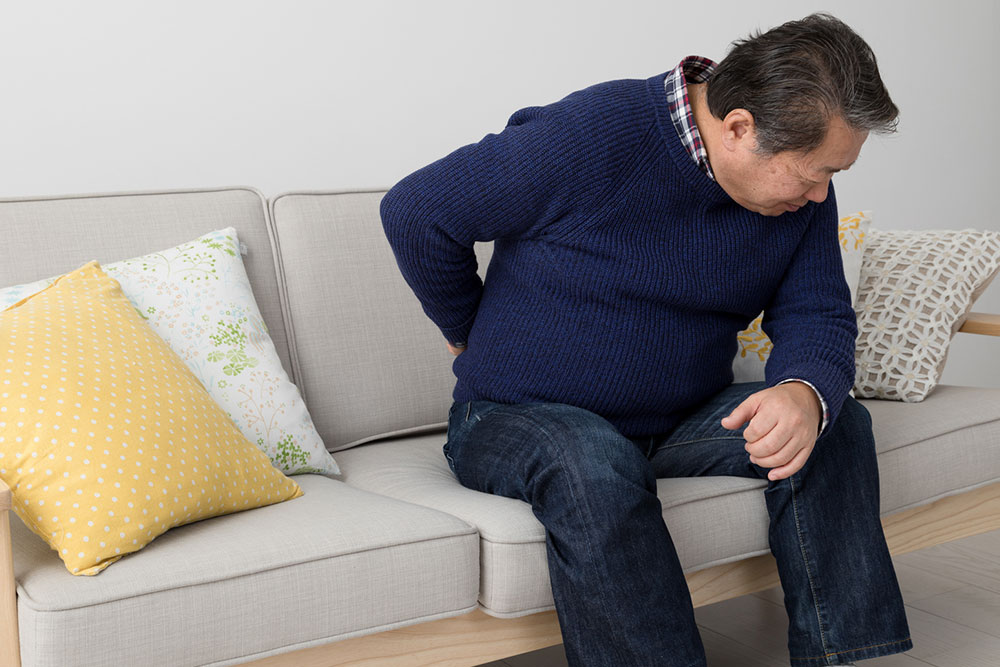8 Ways to Treat Back Pain Without Surgery
Back pain is one of the most common health problems that affect a large number of people in the country. The pain can range from a minor, constant ache to a sudden, sharp, and penetrating sensation that makes the person unable to move. Back pain can strike at any time. It can result from a strain or injury in the back due to an accident or heavy lifting or can develop over time due to changes in the spine as we age. Moreover, a sedentary lifestyle can also lead to chronic back pain. In most cases, stress or tension in the back muscles causes pain.

Treatment options for back pain
If you are experiencing unbearable pain, you need to visit a healthcare professional. However, a lot of times, the pain is short-term and can be effectively treated with a combination of non-surgical options that offer instant relief.
Benefits of non-surgical treatments
The chief benefit of non-surgical back pain treatments is that you can manage your pain and move towards an active lifestyle. Some of the other advantages are:
- The ability to work and treat your pain simultaneously
- Better flexibility
- Improvement in the body’s posture
- Learning effective ways to prevent back pain in the future
Effective non-surgical treatments
Physical therapy
Exercise is the best solution to get relief from chronic back pain.
The following activities will be included in a physical therapy routine to get relief from back pain:
- Stretching
- Flexibility exercises
- Retraining body posture
- Aerobic exercises
- Core strengthening exercises
- Testing pain tolerance limits
Hot and cold packs
You can use this technique to get relief from back pain at home. Local application of hot and cold packs can ease the pain, improve stretching, reduce inflammation as well as allow better mobility for some people.
It is advisable to use an ice pack for 10-15 minutes every 2 hours. In case the pain is unbearable, you can use it every hour. Use an ice pack for the first 48 hours after the pain starts, and later, switch to a heating pad.
Back injections
You may have to get several spinal injections if you have persistent back pain. However, doctors will carry out a thorough medical examination before opting for this treatment option. These injections offer long-term relief from back pain, sometimes even curing the pain permanently. The most commonly prescribed back injections include acupuncture injection therapy, nerve block injections, trigger point injections, epidural injections, lumbar epidural steroid injections, cortisone injections, and sacroiliac joint injections.
Meditation
Chronic back pain is often taxing, both physically and emotionally. It is best to consult a rehabilitation psychologist to deal with symptoms like irritability. These psychologists recommend various relaxation exercises such as meditation, tai chi, yoga, and other cognitive strategies to divert your mind from the pain and frustration.
Pharmacological treatments
Your doctor may recommend taking anti-inflammatory drugs, analgesics, muscle relaxants or other medications to relieve the symptoms of chronic back pain. However, one should remember that all these medications come with certain risks and limitations. Therefore, they are not intended for long-term use.
Therapeutic massage
Therapeutic massage is known to improve blood flow and decrease muscle stiffness. It is a great way to relieve muscle spasms that contribute to pain in the back’s muscles.
Acupuncture
The technique of acupuncture is also seen to be extremely beneficial for reducing back pain.
Spinal cord stimulation
Spinal cord stimulation is one of the best treatments for back pain. It is especially useful for people who have not found relief through any other method. This minimally invasive treatment helps to treat chronic cases of back pain. In this technique, soft, thin electrical wires with electrical leads are placed near the spinal column via a needle. Through two small incisions, an electric current is applied to the point of pain, thus blocking the brain’s ability to feel pain.
Most of the lower back pains are not chronic and last for just a couple of days or weeks. In such cases, practicing self-care techniques along with these back pain treatments can provide relief quickly.
However, if you have back pain that persists for more than 4 to 6 weeks, you must consult a medical practitioner. Or, if the back pain occurs after an injury, you should call a doctor immediately.

